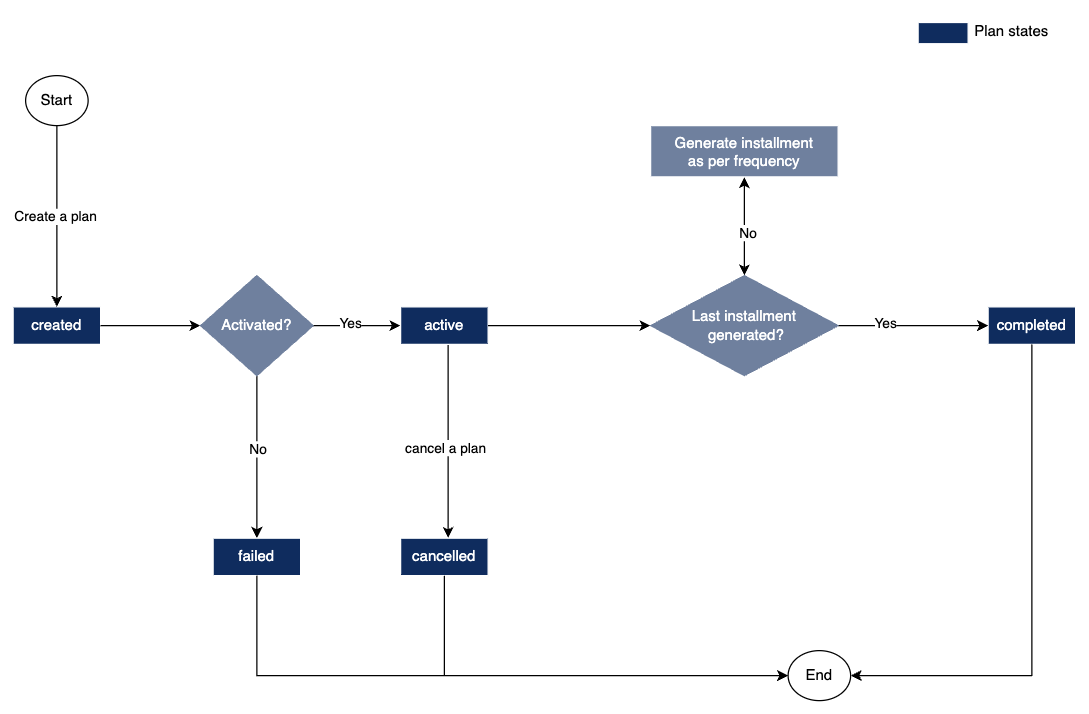Recurring Orders
Transaction plans are used to generate orders on a recurring basis. The user can use the transaction plan APIs to create two types of plans -
- Systematic Plans (SIP/ SWP/ STP)
- Non-Systematic Plans
What is a Non-Systematic Plan?
A non-systematic plan has the same behaviour as that of a systematic plan, but is not registered as a systematic plan in RTA. Instead it is registered as a series of lumpsum orders generated at the frequency specified by the user during the non-systematic plan creation.
A non-systematic plan can be created by creating a transaction plan with
systematic= false.
Transaction Plan Lifecycle

- User creates a transaction plan. The plan immediately becomes
activeupon plan creation. - Once the plan becomes active, installments are generated by FP as per the
installment_dayandfrequencyof the plan. Refer Installment Generation Lifecycle section below to understand the flow of installments. - Once all the installments of the plan have been generated, the plan state changes to
completed. - The user can also choose to modify an active plan. Please refer Transaction Plan Modifications for more info.
Transaction Plan Modifications
- After the plan is active, the user has the option to modify the plan as per his requirement -
- If the plan is systematic (
systematic= true), the user can modify the plan amount. - If the plan is non-systematic (
systematic= false), the user can modify the plan amount, installment day and number of installments.
- If the plan is systematic (
- The user can also opt to pause a plan between a given timeframe. Upon pausing the plan, for all the installments that fall under the time frame, FP generates the installments and marks them as
cancelled.
If a user wants to modify a plan right from the next installment, the plan must be modified at least 2 calendar days before the next installment is scheduled.
Installment Generation Lifecycle
For every installment of a plan, FP creates a MF order. So the lifecycle of a transaction plan installment is the same as that of a MF order. To understand more about the installment lifecycle refer Orders Lifecycle